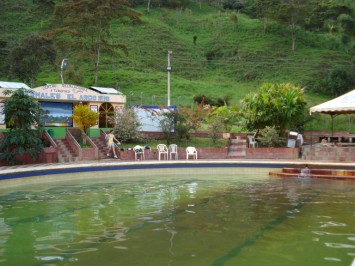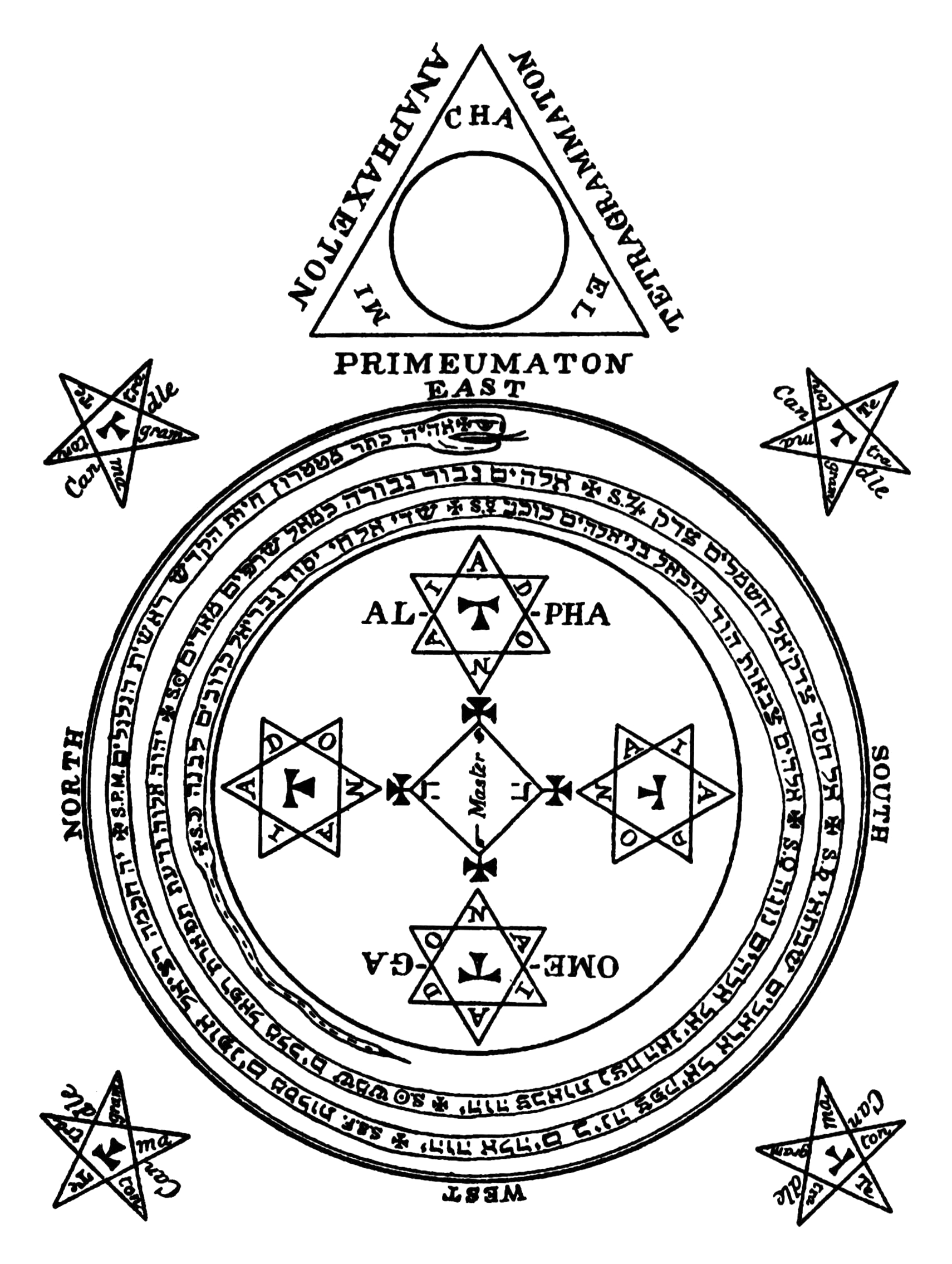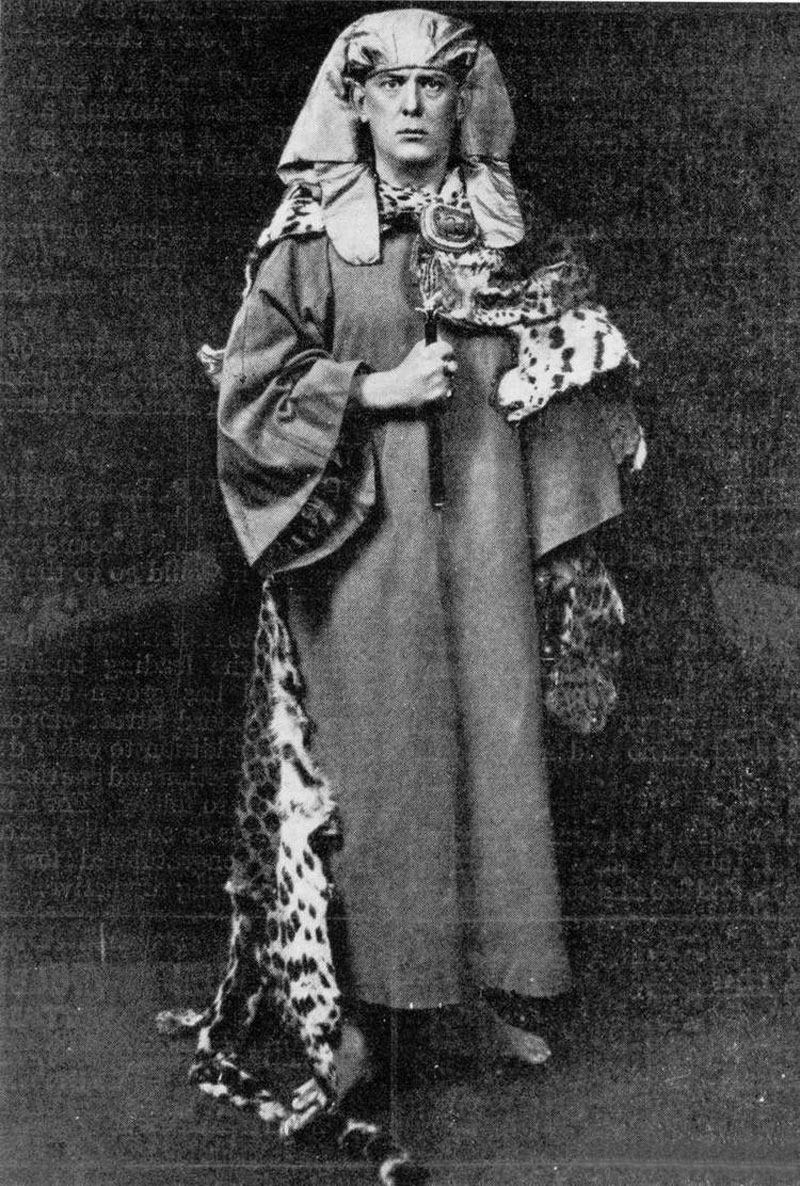|
Georg Pictorius
Georg Pictorius of Villingen (c. 1500 – 1569) was a physician and an author of the German Renaissance. He became active as a physician from 1540 in Ensisheim. In his book on magic, he condemns witchcraft, endorsing the witch-trials of his time: "if the witches are not burned, the number of these furies swells up in such an immense sea that no one could live safe from their spells and charms." (Midelfort p. 59) His gynecological ''Frauenzimmer'' gives cosmetic advice for women, from the suppression of unpleasant scents to the shaping of their bosom (Walter, p. 372f.) works: *1532 Theologia mythologica *''Isagoge'', the fourth book in the collection published as the Fourth Book of Occult Philosophy by Henry Cornelius Agrippa *1555 '' Lasz Büchlin'', on bloodletting *1560 '' Baderbüchlin'', on balneotherapy *''Von den Gattungen der Ceremonialmagie (Goetie)'' (Eng. ''Of the Kinds of Ceremonial Magic (Goetia)''), ed. ''Das Kloster'' (1846) See also *Johann Weyer Joh ... [...More Info...] [...Related Items...] OR: [Wikipedia] [Google] [Baidu] |
Pictorius
{{Disambiguation ...
Pictorius is the Latin for "painter". It is also a Latinized name used by several authors of the Renaissance era. *Georg Pictorius *Josua Maaler Josua Maaler (also ''Maler, Mahler'', Latinized ''Pictorius''; 1529–1599) was a Swiss pastor and lexicographer. He was the author of the first dictionary which focussed exclusively on the German language, published in Zürich as ''Die Teü ... [...More Info...] [...Related Items...] OR: [Wikipedia] [Google] [Baidu] |
Balneotherapy
Balneotherapy ( la, balneum "bath") is a method of treating diseases by bathing, a traditional medicine technique usually practiced at spas. Since ancient times, humans have used hot springs, public baths and thermal medicine for therapeutic effects. While it is considered distinct from hydrotherapy, there are some overlaps in practice and in underlying principles. Balneotherapy may involve hot or cold water, massage through moving water, relaxation, or stimulation. Many mineral waters at spas are rich in particular minerals such as silica, sulfur, selenium, and radium. Medicinal clays are also widely used, a practice known as 'fangotherapy'. Definition and characteristics "Balneotherapy" is the practice of immersing a subject in mineral water or mineral-laden mud; it is part of the traditional medicine of many cultures and originated in hot springs, cold water springs, or other sources of such water, like the Dead Sea. Presumed effect on diseases Balneotherapy may be recomm ... [...More Info...] [...Related Items...] OR: [Wikipedia] [Google] [Baidu] |
Occult Writers
The occult, in the broadest sense, is a category of esoteric supernatural beliefs and practices which generally fall outside the scope of religion and science, encompassing phenomena involving otherworldly agency, such as magic and mysticism and their varied spells. It can also refer to supernatural ideas like extra-sensory perception and parapsychology. The term ''occult sciences'' was used in 16th-century Europe to refer to astrology, alchemy, and natural magic. The term ''occultism'' emerged in 19th-century France, amongst figures such as Antoine Court de Gébelin. It came to be associated with various French esoteric groups connected to Éliphas Lévi and Papus, and in 1875 was introduced into the English language by the esotericist Helena Blavatsky. Throughout the 20th century, the term was used idiosyncratically by a range of different authors, but by the 21st century was commonly employed – including by academic scholars of esotericism – to refer to a range of es ... [...More Info...] [...Related Items...] OR: [Wikipedia] [Google] [Baidu] |
German Male Writers
German(s) may refer to: * Germany (of or related to) **Germania (historical use) * Germans, citizens of Germany, people of German ancestry, or native speakers of the German language ** For citizens of Germany, see also German nationality law **Germanic peoples (Roman times) * German language **any of the Germanic languages * German cuisine, traditional foods of Germany People * German (given name) * German (surname) * Germán, a Spanish name Places * German (parish), Isle of Man * German, Albania, or Gërmej * German, Bulgaria * German, Iran * German, North Macedonia * German, New York, U.S. * Agios Germanos, Greece Other uses * German (mythology), a South Slavic mythological being * Germans (band), a Canadian rock band * "German" (song), a 2019 song by No Money Enterprise * ''The German'', a 2008 short film * "The Germans", an episode of ''Fawlty Towers'' * ''The German'', a nickname for Congolese rebel André Kisase Ngandu See also * Germanic (other) * Germa ... [...More Info...] [...Related Items...] OR: [Wikipedia] [Google] [Baidu] |
German Gynaecologists
German(s) may refer to: * Germany (of or related to) ** Germania (historical use) * Germans, citizens of Germany, people of German ancestry, or native speakers of the German language ** For citizens of Germany, see also German nationality law **Germanic peoples (Roman times) * German language **any of the Germanic languages * German cuisine, traditional foods of Germany People * German (given name) * German (surname) * Germán, a Spanish name Places * German (parish), Isle of Man * German, Albania, or Gërmej * German, Bulgaria * German, Iran * German, North Macedonia * German, New York, U.S. * Agios Germanos, Greece Other uses * German (mythology), a South Slavic mythological being * Germans (band), a Canadian rock band * "German" (song), a 2019 song by No Money Enterprise * ''The German'', a 2008 short film * "The Germans", an episode of ''Fawlty Towers'' * ''The German'', a nickname for Congolese rebel André Kisase Ngandu See also * Germanic (other) * ... [...More Info...] [...Related Items...] OR: [Wikipedia] [Google] [Baidu] |
1569 Deaths
Year 1569 ( MDLXIX) was a common year starting on Saturday (link will display the full calendar) of the Julian calendar. Events January–June * January 11–May 6 – The first recorded lottery in England is performed nonstop, at the west door of St Paul's Cathedral. Each share costs ten shillings, and proceeds are used to repair harbours, and for other public works. * March 13 – Battle of Jarnac: Royalist troops under Marshal Gaspard de Tavannes surprise and defeat the Huguenots under the Prince of Condé, who is captured and murdered. A substantial proportion of the Huguenot army manages to escape, under Gaspard de Coligny. * June 10 – German Protestant troops reinforce Coligny, near Limoges. July–December * July 1 – The Union of Lublin unites the Kingdom of Poland and the Grand Duchy of Lithuania into a single state, the Polish–Lithuanian Commonwealth, following votes in the Assemblies of three Lithuanian provinces (Volhynia, Ukraine and Podlasie) in fa ... [...More Info...] [...Related Items...] OR: [Wikipedia] [Google] [Baidu] |
1500s Births
Fifteen or 15 may refer to: *15 (number), the natural number following 14 and preceding 16 *one of the years 15 BC, AD 15, 1915, 2015 Music *Fifteen (band), a punk rock band Albums * ''15'' (Buckcherry album), 2005 * ''15'' (Ani Lorak album), 2007 * ''15'' (Phatfish album), 2008 * ''15'' (mixtape), a 2018 mixtape by Bhad Bhabie * ''Fifteen'' (Green River Ordinance album), 2016 * ''Fifteen'' (The Wailin' Jennys album), 2017 * ''Fifteen'', a 2012 album by Colin James Songs * "Fifteen" (song), a 2008 song by Taylor Swift *"Fifteen", a song by Harry Belafonte from the album '' Love Is a Gentle Thing'' *"15", a song by Rilo Kiley from the album ''Under the Blacklight'' *"15", a song by Marilyn Manson from the album ''The High End of Low'' *"The 15th", a 1979 song by Wire Other uses *Fifteen, Ohio, a community in the United States * ''15'' (film), a 2003 Singaporean film * ''Fifteen'' (TV series), international release name of ''Hillside'', a Canadian-American teen drama *Fi ... [...More Info...] [...Related Items...] OR: [Wikipedia] [Google] [Baidu] |
Johann Weyer
Johann Weyer or Johannes Wier ( la, Ioannes Wierus or '; 1515 – 24 February 1588) was a Dutch physician, occultist and demonologist, disciple and follower of Heinrich Cornelius Agrippa. He was among the first to publish against the persecution of witches. His most influential work is ('On the Illusions of the Demons and on Spells and Poisons'; 1563). Biography Weyer was born in Grave, a small town in the Duchy of Brabant in the Habsburg Netherlands. He attended the Latin schools in 's-Hertogenbosch and Leuven and when he was about 14 years of age, he became a live-in student of Agrippa, in Antwerp. Agrippa had to leave Antwerp in 1532 and he and Weyer settled in Bonn, under the protection of prince-bishop Hermann von Wied. (Agrippa completed a work on demons in 1533 and perished two years later while on a trip to France). From 1534, Weyer studied medicine in Paris and later in Orléans, but it appears unlikely that he obtained the title of Doctor through these s ... [...More Info...] [...Related Items...] OR: [Wikipedia] [Google] [Baidu] |
Das Kloster
''Das Kloster'' ("The Cloister"; full title ''Das Kloster. Weltlich und geistlich. Meist aus der ältern deutschen Volks-, Wunder-, Curiositäten-, und vorzugsweise komischen Literatur'' "The Cloister. Profane and sacred. Mostly from older German Popular, Miraculous, Curious and especially Comical Literature") is a collection of magical and occult texts, chapbooks, folklore, popular superstition and fairy tales of the German Renaissance compiled by Stuttgart antiquarian Johann Scheible in 12 volumes, 1845-1849. Vols. 3, 5 and 11 are dedicated to the Faust legend. Vols. 7, 9 and 12 dealing with topics of folklore and ethnography were written by F. Nork (pseudonym of Friedrich Korn, 1803–1850). *vol. 1 (1845), 840 pp, ch. 1-4 ''Volksprediger, Moralisten und frommer Unsinn'' *vol. 2 (1846), 1074 pp, ch. 5-8'', Doctor Johann Faust'' *vol. 3 (1846), 1065 pp, ch. 9-12, ''Christoph Wagner, Don Juan Tenorio und verschiedene Schwarzkünstler und Beschwörer'' **9. Christoph Wagn ... [...More Info...] [...Related Items...] OR: [Wikipedia] [Google] [Baidu] |
Goetia
''The Lesser Key of Solomon'', also known as ''Lemegeton Clavicula Salomonis'' or simply ''Lemegeton'', is an anonymous grimoire on demonology. It was compiled in the mid-17th century, mostly from materials a couple of centuries older.''Lemegeton Clavicula Salomonis: The Lesser Key of Solomon, Detailing the Ceremonial Art of Commanding Spirits Both Good and Evil''; ed. Joseph H. Peterson; Weiser Books Maine; 2001. pp. xi–xvii.''The Goetia of Dr Rudd''; Thomas Rudd, Eds. Stephen Skinner & David Rankine; 2007, Golden Hoard Press. p. 399. It is divided into five books—the ''Ars Goetia'', ''Ars Theurgia-Goetia'', ''Ars Paulina'', ''Ars Almadel'', and ''Ars Notoria''. ''Ars Goetia'' Etymology The text is more properly called "Lemegeton Clavicula Salomonis, or, The little Key of Solomon". The title most commonly used, "The Lesser Key of Solomon," does not in fact occur in the manuscripts. A.E. Waite, in his 1898 ''Book of Black Magic and of Pacts'' does use the ter ... [...More Info...] [...Related Items...] OR: [Wikipedia] [Google] [Baidu] |
Ceremonial Magic
Ceremonial magic (ritual magic, high magic or learned magic) encompasses a wide variety of rituals of magic. The works included are characterized by ceremony and numerous requisite accessories to aid the practitioner. It can be seen as an extension of ritual magic, and in most cases synonymous with it. Popularized by the Hermetic Order of the Golden Dawn, it draws on such schools of philosophical and occult thought as Hermetic Qabalah, Enochian magic, Thelema, and the magic of various grimoires. Ceremonial magic is part of Hermeticism and Western esotericism. The synonym magick is a archaic spelling of 'magic' used during the Renaissance, which was revived by Aleister Crowley to show and differentiate the occult from performance magic. He defined it as "the Science and Art of causing Change to occur in conformity with Will", including "mundane" acts of will as well as ritual magic. Crowley wrote that "it is theoretically possible to cause in any object any change of which ... [...More Info...] [...Related Items...] OR: [Wikipedia] [Google] [Baidu] |
Bloodletting
Bloodletting (or blood-letting) is the withdrawal of blood from a patient to prevent or cure illness and disease. Bloodletting, whether by a physician or by leeches, was based on an ancient system of medicine in which blood and other bodily fluids were regarded as "Humorism, humours" that had to remain in proper balance to maintain health. It is claimed to have been the most common medical practice performed by surgeons from Ancient history, antiquity until the late 19th century, a span of over 2,000 years. In Europe, the practice continued to be relatively common until the end of the 19th century.B.) Anderson, Julie, Emm Barnes, and Enna Shackleton. "The Art of Medicine: Over 2,000 Years of Images and Imagination [Hardcover]." The Art of Medicine: Over 2, 000 Years of Images and Imagination: Julie Anderson, Emm Barnes, Emma Shackleton: : The Ilex Press Limited, 2013. The practice has now been abandoned by modern-style medicine for all except a few very specific medical ... [...More Info...] [...Related Items...] OR: [Wikipedia] [Google] [Baidu] |






